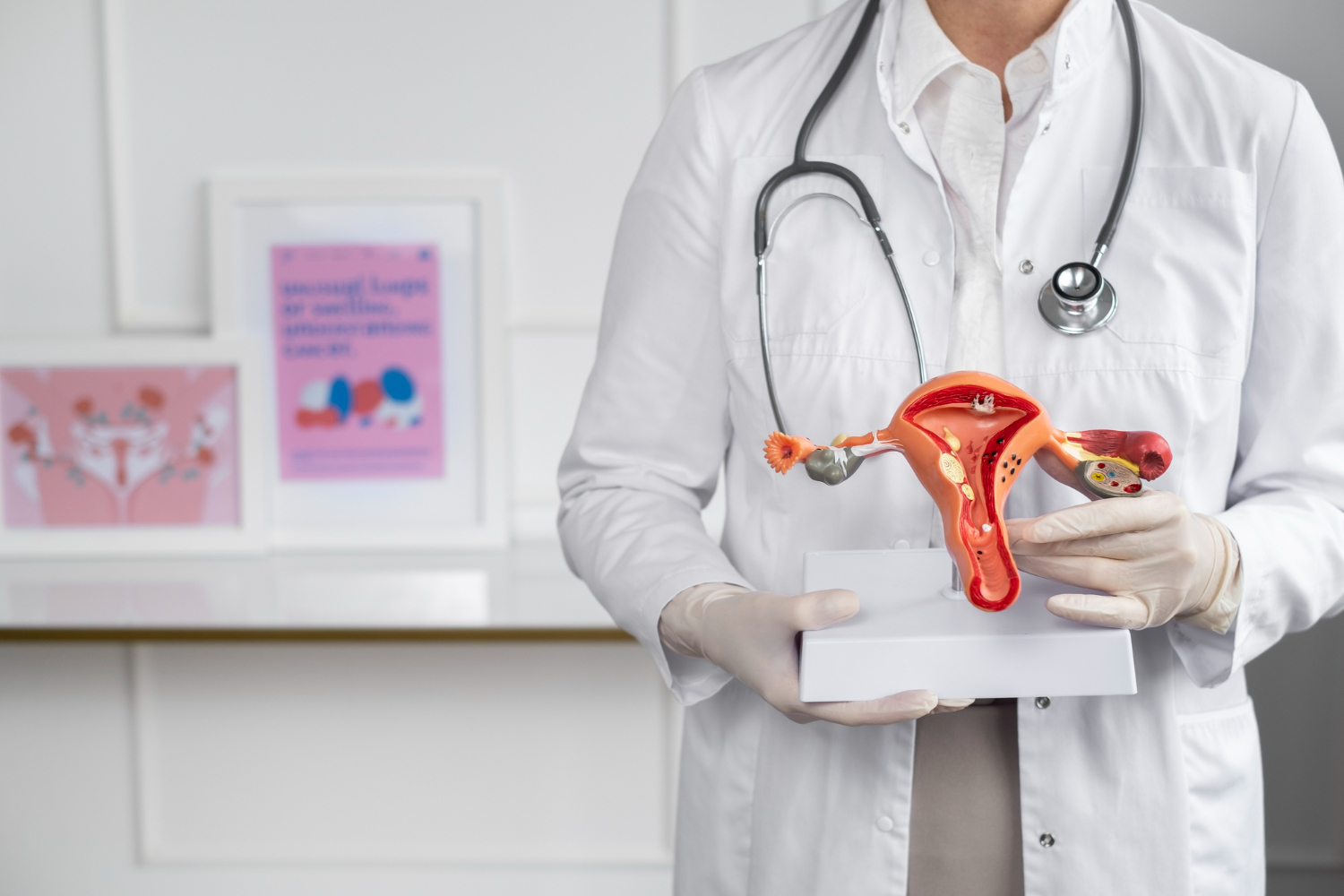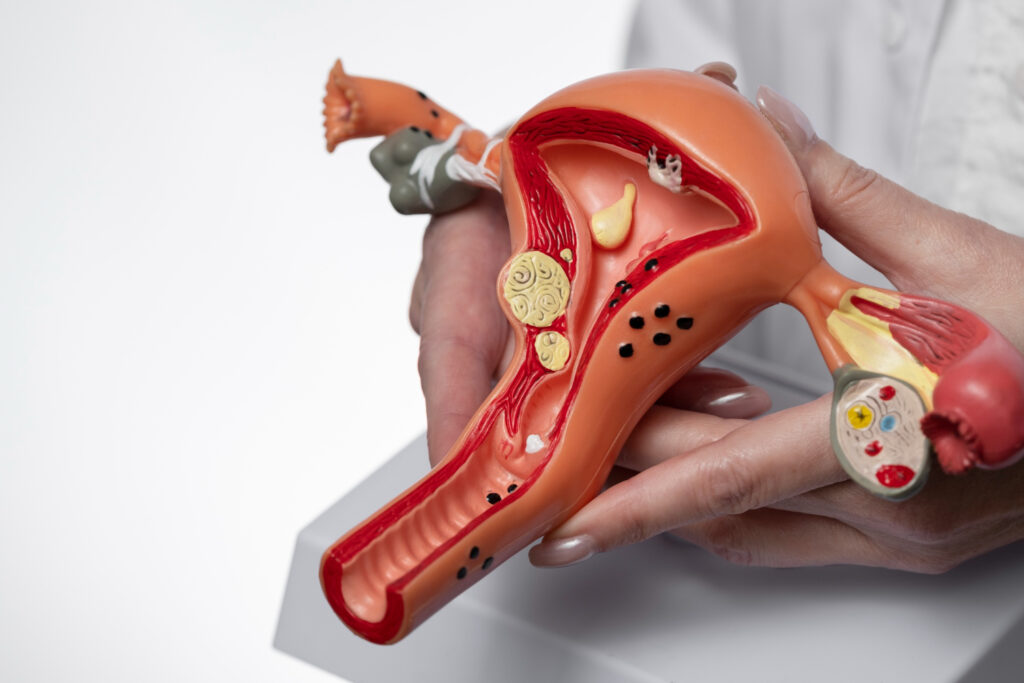
PCOS is the most prevalent women endocrine disorder in childbearing period and already turned a serious threat to general somatic health and reproductive health. It can be manifested by the following signs: irregularities in menstrual cycle, excess hair growth, acne, infertility. These symptoms being so complex and sometimes interlinking with other disorders, many women can enter the disease quite a while after the initial symptoms have arisen. A timely and correct diagnosis of PCOS will help in the management of symptoms better and reducing the chances of long-term complications. This review article discusses some important symptoms and diagnosis modes for PCOD, thereby emphasizing early detection.
Signs and Symptoms of PCOS
Symptoms and signs vary from woman to woman, and many are associated with PCOS. Some will experience only a few mild symptoms, while for others, the problems are more serious. The general symptoms of PCOS include the following:
- Irregular Menstrual Cycles
One of the most prevailing manifestations of PCOS is menstrual anomaly. Manifestation of this anomaly is expressed either by lengthening or shortening of menstrual cycles in women suffering from this syndrome. Others might remain without a monthly period-a condition referred to as “amenorrhea.” The reasons for this irregularity include:
- Irregular Ovulation: Under normal physiological conditions, the ovaries release one egg every month’s end. In the case of PCOS, this mechanism has been under threat, leading to less frequent ovulation and causing problems related to menstrual cycle irregularity.
- High Levels of Androgen: Most women with PCOS usually have high levels of androgens, such as testosterone, which may cause excess hairiness and acne. The hormonal imbalance may influence the regular menstrual cycle.
- Hormonal Imbalance: The amount of hormones responsible, including estrogen and progesterone, for regularizing the menstrual cycle is disturbed in PCOS; hence, it causes irregular cycles.
- Excess Hair Growth
This is one of the common symptoms of PCOS, in the form of hirsutism or excess hair growth, largely due to the following:
- Increased Androgen Levels: The ovaries produce a higher amount of androgens in women with PCOS. An increase in these hormones leads to excessive hair on some parts of the body like the face, chest, back, and abdomen.
- Follicle Sensitivity: The sensitivity of hair follicles may increase towards androgens, causing thick, dark hair to grow in many areas of the body.
- Acne and Skin Problems
PCOS can cause many skin issues, many of which are caused by the hormonal imbalance and large amount of androgen on the body. Among these are:
- Acne: Androgens stimulate an increase in the oil of sebaceous glands; this clogs pores, most commonly as whiteheads or blackheads but can be painful cysts.
- Greasier Skin: Oily skin, due to the production of more oil, is greasier than usual; this may lead to excessive shininess and may include special skin care as well.
- Acanthosis Nigricans: In general, the skin condition that provides a darkening and thickening of the skin; it usually occurs in the back of the neck, beneath the armpits and groin, though the condition is more common in women with insulin resistance associated with PCOS.
- Thinning of Hair-Androgenic Alopecia: The high level of androgens commonly shared in the PCOS may promote thinning of scalp hair medically known as androgenic alopecia presenting with partial baldness.

- Weight Gain and Obesity
Obesity and PCOS go into a vicious circle. Generally, PCOS causes obesity, which in turn aggravates all the symptoms of PCOS. The metabolic gain, mainly around the abdomen, may increase the risk for health conditions such as type 2 diabetes, cardiovascular disease, and infertility.
- Insulin Resistance: The majority of the females suffering from PCOS have resistance to insulin, which is actually an etiology of such a situation wherein the body may not respond appropriately to insulin. The spurting levels of insulin encourage the body to hold on to more fat, leading to obesity, or sometimes it may stimulate androgen production, resulting in the worse manifestation of PCOS symptoms.
- Impact on Fertility: The factor of obesity in women suffering from PCOS may contribute to higher infertility by causing a further imbalance in the levels of sex hormones and lowering chances of ovulation and conception even more.
- Issues with Fertility
PCOS is one of the major reasons for infertility among women. Following are some of the obstacles to fertility created by the syndrome:
- Irregular Ovulation: PCOS provokes the hormonal imbalance, when ovaries cannot release an egg in regular periods, which is a requirement for achieving pregnancy.
- Poor Egg Quality: Eggs coming out in the case of PCOS are usually poor in quality, hence reducing the chances of conception and increasing the risk for miscarriage.
- Hormonal Imbalance: In most cases of PCOS-affected women, high levels of androgens have been recorded, thereby messing up the balance in sex hormones and periodicity of ovulation, which affects fertility.
- Abnormalities within the Endometrium Lining: Estrogen and other disturbances in hormones can cause thickening of the lining of the endometrium, which may affect implantation of the embryo and nourishment to sustain the pregnancy.
- Greater Miscarriage Risk: Miscarriages are more common in women with PCOS, possibly due to poor egg quality, hormonal imbalance, and problems in the endometrium.
- Psychological Disorders
Not only does it affect physical health, but PCOS also affects mental health, with an increased risk for several psychological disorders being on record:
- Depression: This is the most common psychological disorder occurring in women with PCOS, probably due to changes in hormones, infertility, or/and disturbances in body imagery.
- Anxiety: The causes related to infertility problems, body image, and pressures from society contribute to anxiety in the female with PCOS.
- Chronic stress: Symptoms of the PCOS, infertility problem and societal pressures regarding childbearing could result in chronic management of the symptoms, thereby leading to chronic stress.
- Eating disorders: Most of the affected women can develop eating disorders due to weight and appearance-related problems; binge eating or anorexia is highly common.
- Sleep Disorders: Sleep disturbances are more common in women with PCOS as a result of psychological problems like stress and anxiety or due to physical problems that relate to sleep disorders, which could be associated with overweight conditions.
- Insulin Resistance and Type 2 Diabetes
PCOS is normally characterized by insulin resistance, which may raise the level of blood sugar, hence predisposing an individual to type 2 diabetes. Type 2 diabetes in women with PCOS results from high levels of insulin stimulating the ovaries to produce excess amounts of male hormones.

Methods for Diagnosing PCOS
The diagnosis involves a complete clinical check-up including blood tests and ultrasound imaging of the pelvic region, in view of the fact that all symptoms of this disorder can be manifested by other disorders and thus have to be medically confirmed.
- Medical History and Physical Examination
It is always begun with detailed anamnestic information. Physicians can ask about periodicity of menstrual cycle, development of unnecessary hair, weight gain, and familial medicinal history about hormonal disorder. Clinical investigations generally involve a search for signs like acnes, hirsutism, and distribution of fat.
- Blood Tests
Confirmation of the diagnosis is done by blood investigations. Most of them include testosterone, estrogen, progesterone, LH, and FSH. The most important abnormalities are raised levels of androgen and an abnormal ratio of LH to FSH.
- Ultrasound
Ultrasound clearly diagnoses PCOS because it is able to view ovaries. It is characterized by more than 12 small cysts appearing on the ovaries, each having a diameter of 2-9 mm. Though the cysts alone cannot confirm diagnosis without clinical manifestations and results of blood analysis.
Final Thoughts
Early diagnosis of PCOS is very crucial due to the severities of symptoms and effects. Thus, infertility, type 2 diabetes, and cardiovascular diseases can be avoided if diagnosed on time. Symptoms such as irregular periods, excess hair, and skin problems are the signs of consulting the doctor for the respective tests. The symptom awareness and utilisation of proper diagnostic techniques are the main concerns in the management of PCOS and protection of overall women’s health.
References
- https://www.uptodate.com/contents/diagnosis-of-polycystic-ovary-syndrome-in-adults
- https://pubmed.ncbi.nlm.nih.gov/17304034/
- https://emedicine.medscape.com/article/256806-guidelines








No comment yet, add your voice below!